Arts & Entertainment
Best of Gay D.C. 2016: PEOPLE
Blade readers voted for their favorite people
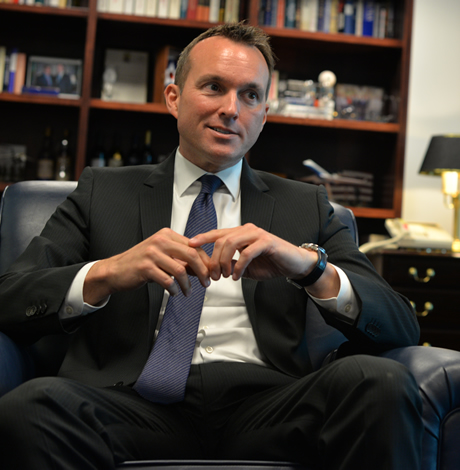
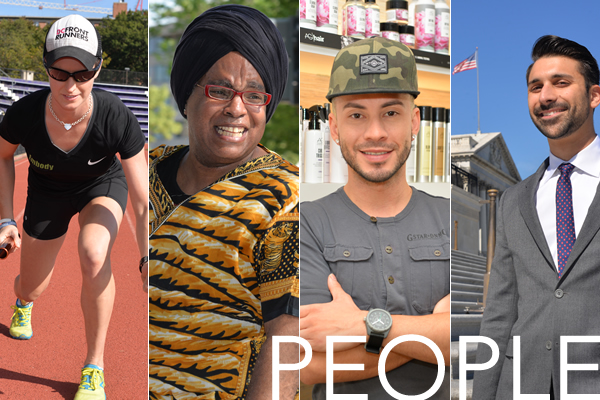 Local Hero
Local Hero
Eric Fanning, U.S. Army Secretary
President Obama has appointed a record number of openly LGBT people to his administration, but over the course of the last year none has received as much attention as Army Secretary Eric Fanning.
His approval by the U.S. Senate in May after a nearly yearlong process in which his confirmation was in question made him the first openly gay person confirmed to head a military service branch.
Since that time, Fanning has become a hero in the LGBT community and a favorite interview subject for the media.
In an interview with the Blade in August, Fanning said he’s aware of his fan base, which he said has grown with each advancement of his career at the Pentagon.
“I always think I’m prepared and then the wave comes when you’re nominated, when you’re confirmed, when you’re sworn in,” Fanning said. “There’s always something that’s a hook that gets a little bit of attention.”
Over the course of the Obama administration, Fanning has occupied a position in each of the military services. Before his confirmation as Army secretary, Fanning held the posts of Air Force under secretary and deputy secretary at the Navy. Fanning was also chief of staff to Defense Secretary Ashton Carter and served as acting Army secretary, but had to relinquish the job briefly to win confirmation.
No stranger to LGBT advocacy, Fanning was once a board member for the Gay & Lesbian Victory Fund. He began his tenure in the Obama administration at the time Congress repealed “Don’t Ask, Don’t Tell.”
In 2013, Fanning became the first senior defense official to endorse a non-discrimination rule for sexual orientation in the military and openly transgender service in the armed forces. The U.S. military has since adopted both ideas.
Fanning said in August the changes have been great for him to witness personally, but “far more important, I think, it’s been great for the U.S. military.”
“Opening up service to people who haven’t had the opportunities, but meet the requirements, means we can recruit from a broader pool of talent and get the best our country has to offer,” Fanning said. (Chris Johnson)
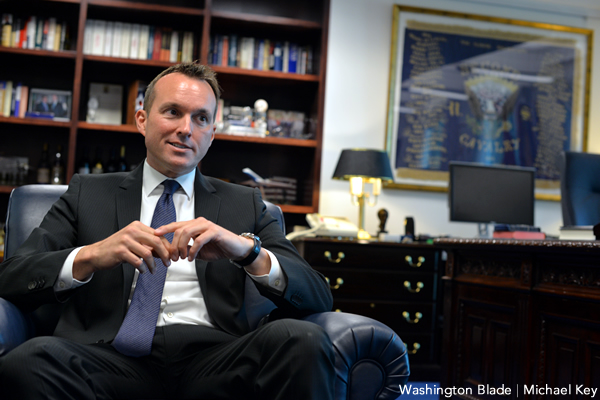
Army Secretary Eric Fanning (Washington Blade photo by Michael Key)
Best Amateur Athlete/Best Fitness Instructor
Grace Thompson, D.C. Front Runners
Runner-up: Mark Hofberg, D.C. Gay Flag Football
Runner-up (fitness instructor): Kyle Suib
Grace Thompson calls the D.C. Front Runners “welcoming, supportive and friendly.”
The D.C. native joined the group seven years ago and is one of between 15-20 women in the league.
“Our group is dynamic with a full spectrum of runners, from the sub three-hour marathon to walkers and every pace in between.”
Thompson, a lesbian, started running consistently about 10 years ago. Since then, she’s run five full marathons and four half marathons. On Oct. 30, she’ll add another to the list — the Marine Corps Marathon.
“I’m honored, surprised and thankful to win,” Thompson, who works by day as the owner of Embody Pure Fitness, says. “I honestly didn’t campaign at all. It was a surprise to me that I was even nominated.” (Joey DiGuglielmo)
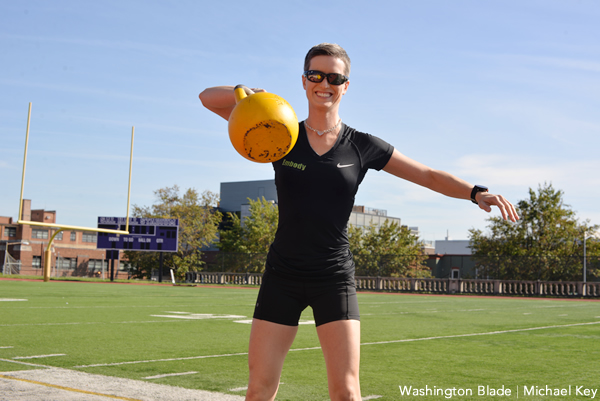
Grace Thompson (Washington Blade photo by Michael Key)
Best Artist
John Jack Gallagher
Runner-up: Denis Largeron
John Jack Gallagher has been taking photos since his first boyfriend gave him a 35-millimeter camera for his birthday more than 30 years ago. In 2012, he started shooting professionally after members of the Stonewall Kickball team he’d been photographing insisted he shoot their wedding.
“I created a Facebook page and started getting a lot of likes and even some clients,” Gallagher, 57, says. “My friends ended up eloping so I did not get to photograph their wedding, but by then, John Jack Photography was started down the road to being a permanent thing.”
Gallagher shoots fundraisers, weddings and sports and says he’s working more hours than he ever has before. “But I love it,” he says. He aims for “colorful, candid and emotional” photos.
“I like my photos to be vibrant and tell a story, even when they capture a single moment,” he says.
Gallagher is single and has been traveling all over the East Coast to build his business.
He’s also learned to be more careful after getting banned from Facebook five years ago for accidentally posting a photo of a woman whose bathing suit had slipped during a Jello wrestling match. (Joey DiGuglielmo)
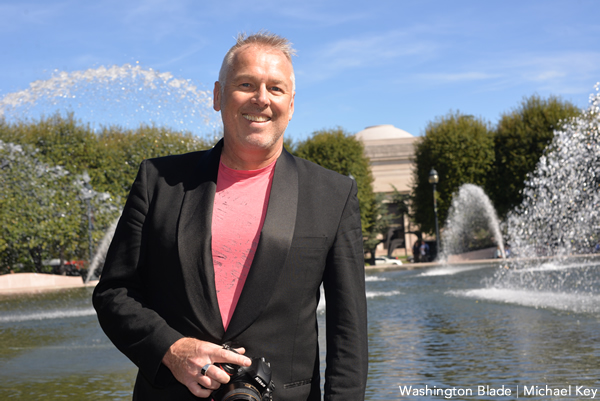
John Jack Gallagher (Washington Blade photo by Michael Key)
Best Businessperson
Jim ‘Chachi’ Boyle
Town, Trade and Number Nine
Runner-up: Dr. Gregory Jones, Capital Center for Psychotherapy & Wellness
Jim “Chachi” Boyle has been involved in various nightlife ventures for 20 years. A decade ago he became business partners with John Guggenmos and Ed Bailey, the visionaries behind Town Danceboutique, Trade and Number Nine.
“It’s an honor to be recognized,” Boyle says. “My partners and I are fortunate to have amazing managers, awesome staffs and great customers.”
Boyle lives in Shaw. Town Danceboutique has won dozens of Washington Blade Best of Gay D.C. awards since it opened in 2007. (Joey DiGuglielmo)
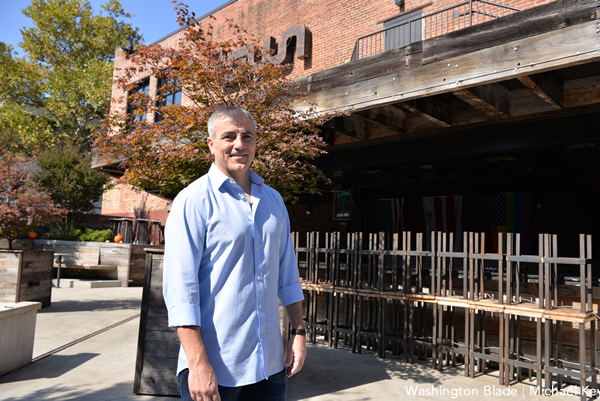
Jim ‘Chachi’ Boyle (Washington Blade photo by Michael Key)
Best Clergy
Rayceen Pendarvis
Runner-up: Bishop Allyson Abrams
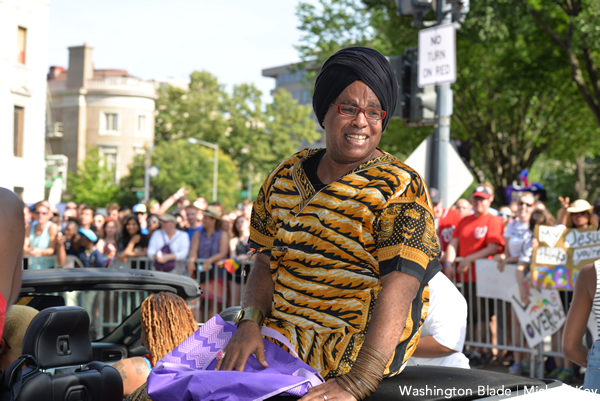
Racine Pendarvis (Washington Blade photo by Michael Key)
Most Committed Activist
Earl Fowlkes
Runner-up: Sarah McBride
Those who know Earl Fowlkes know the path he has taken over the past 30 years from an AIDS and gay rights activist in New York City and D.C. to his current role as leader of three prominent LGBT-related organizations and chair of the D.C. Commission on Human Rights. He epitomizes the term “committed activist.”
Fowlkes served as a volunteer with various AIDS organizations in New York City and New Jersey during the early years of the AIDS epidemic in the 1980s and early 1990s. In 1996, he moved to D.C. to take a job as executive director of Damien Ministries, a faith-based group that provides services to people with HIV/AIDS.
In 1999, he became one of the founders of the organization that expanded D.C.’s Black Pride celebration into a national federation that quickly evolved into the International Federation of Black Prides, which helped coordinate black LGBT Pride events worldwide.
While serving as its CEO and president, Fowlkes played a key role in 2012 in expanding the organization’s mission to take on black LGBT-related economic, social and health issues along with a change of its name to the Center for Black Equity.
In keeping with his interest in politics as a means of achieving social change, Fowlkes was elected chair of the Democratic National Committee’s LGBT Caucus in August 2013 shortly after being appointed as a member of the DNC. In November 2014, Fowlkes won election as president of D.C.’s Gertrude Stein Democratic Club, the city’s largest local LGBT political organization.
As if this were not enough, the D.C. City Council in July 2015 confirmed Fowlkes’ nomination by Mayor Muriel Bowser to become chair of the D.C. Commission on Human Rights. The independent commission is charged with adjudicating discrimination cases under the city’s Human Rights Act, which bans discrimination, among other categories, based on sexual orientation and gender identity.
“One thing led to another,” said Fowlkes in discussing his activist endeavors. “It’s the most humbling thing that’s ever happened to me and I’m so immensely proud to have this honor.” (Lou Chibbaro Jr.)
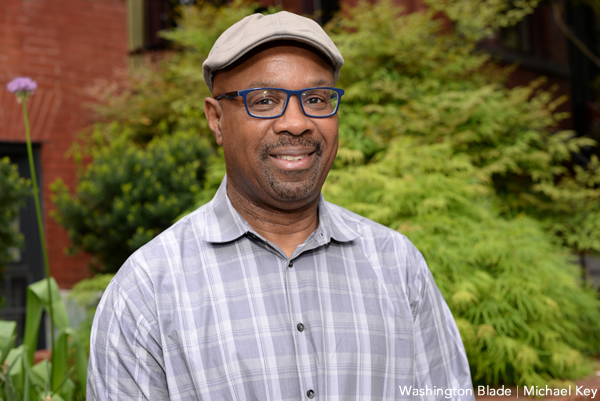
Earl Fowlkes (Washington Blade photo by Michael Key)
Best Council Member
David Grosso
Runner-up: Jack Evans
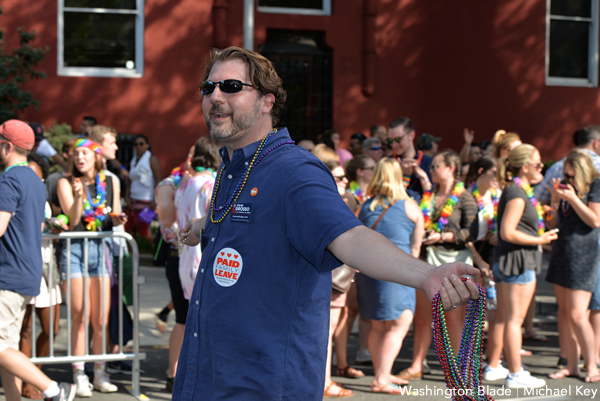
D.C. Council member David Grosso (I-At-Large) (Washington Blade photo by Michael Key)
Most LGBT activists who know Council member David Grosso (I-At-Large) say he began with a running start in his support for LGBT issues during his first year on the Council in 2013 and hasn’t stopped since then.
“He has an extensive record of supporting LGBT concerns, including introduction and passage of bills to prevent youth suicide and to require LGBT cultural competency for medical professionals,” according to the Gay and Lesbian Activists Alliance, which gave Grosso its highest rating of +10 for D.C. Council candidates running in the Nov. 8 election.
During his first term in office, Grosso has introduced, co-introduced or co-sponsored at least a dozen bills that directly or indirectly benefit LGBT people.
Among them is the Youth Suicide Prevention and School Climate Survey Amendment Act of 2015, a first of its kind measure that specifically lists “LGBTQ youth” as an at-risk subgroup requiring careful attention in school suicide prevention programs.
Other bills that Grosso introduced or co-introduced include the LGBTQ Cultural Competency Continuing Education Amendment Act of 2015, which requires all medical professionals to take LGBTQ cultural competency training to maintain their licenses; a bill banning co-called “conversion therapy” for minors; and a measure requiring the city to provide new birth certificates to transgender people to reflect their correct name and gender.
Grosso has attended meetings of LGBT organizations has appeared at numerous LGBT events, including the Capital Pride Parade, AIDS Walk Washington, D.C. Black Pride and the D.C. LGBT Center annual reception.
“As an at-large Council member I work every day to ensure that our city welcomes, embraces and respects the human rights of every person,” he wrote in his response to GLAA’s candidate questionnaire. “This commitment to inclusion is reflected in my staff that includes several individuals who live openly as members of the LGBTQ community.” (Lou Chibbaro, Jr.)
Best Hill Staffer
John Assini
Runner-up: Evan Dorner
For John Assini, public service has been a calling he has felt since his youth and one he now answers as legislative correspondent to Sen. Tammy Baldwin (D-Wis.).
“When I was young, it was instilled in me to fight for my beliefs,” Assini said. “Working on the Hill allows me to do that every day. Working for passionate members of Congress over the last five years has allowed me to contribute in a small way to the national conversation, which has been a humbling experience.”
Assini, 27, has already built a substantial resume since he began his career on Capitol Hill in 2011. Before working for Baldwin, he was a legislative aide for the U.S. Senate Committee on Energy & Natural Resources and an intern for now-Sen. Martin Heinrich (D-N.M.). Between 2012 and 2014, Assini was also a board member for GLASS, the affinity group for LGBT Senate staffers.
But Assini feels especially honored to work for Baldwin, whom he calls a “dedicated and thoughtful member who continues to work tirelessly on behalf of her state and its residents, and who shares my values of a fair, more equitable America.” The only out lesbian in Congress is up for re-election in 2018.
“That I also am part of the first openly gay U.S. senator’s team does not escape me,” Assini said. “She will always be a part of our shared LGBT history and I’m very lucky to work for her. Knowing that I play a role executing Sen. Baldwin’s vision of cleaner energy, better water quality and a brighter future for Wisconsin helps me stay focused every day.” (Chris Johnson)
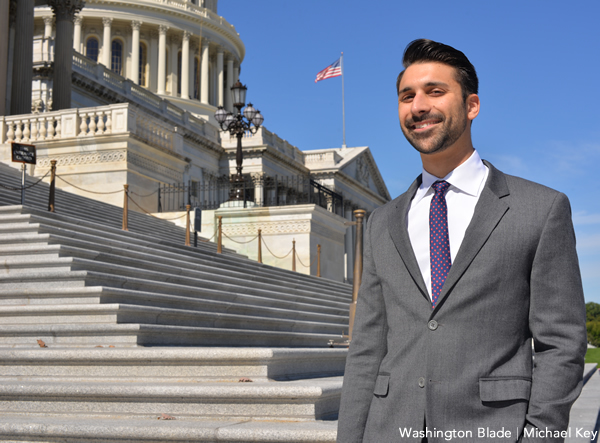
John Assini (Washington Blade photo by Michael Key)
Best Local Pro Athlete
Katie Ledecky
Five-time Olympic Gold medalist in swimming
Runner-up: Bryce Harper

Katie Ledecky (Photo by Fernando Frazao of Agencia Brasil)
Best Massage
Gary Brennan
Arlington, Va.
301-704-1158
Runner-up: Jacob Gough
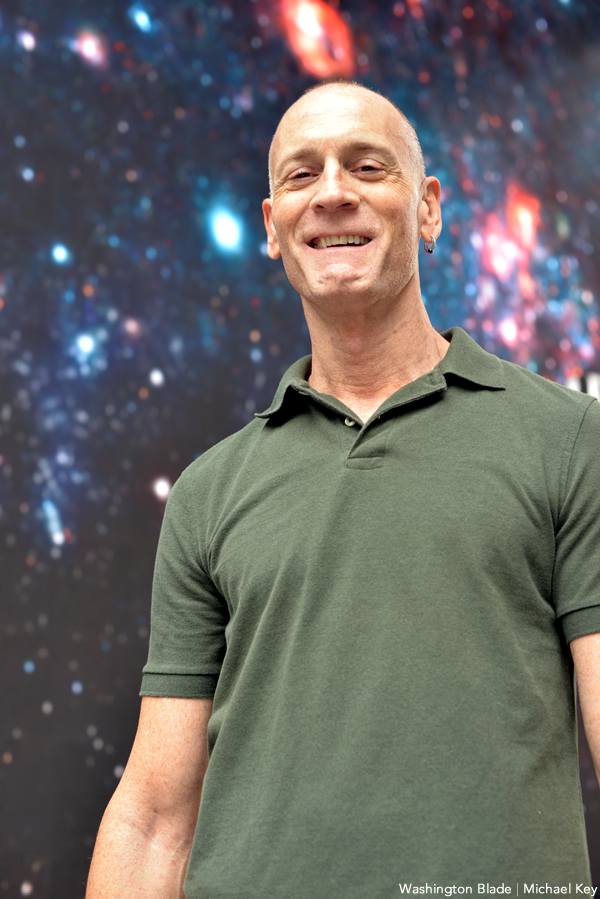
Gary Brennan (Washington Blade photo by Michael Key)
Best LGBT Bureaucrat
Sheila Alexander-Reid
Director of LGBTQ Affairs for D.C. government
Runner-up: Jack Jacobson
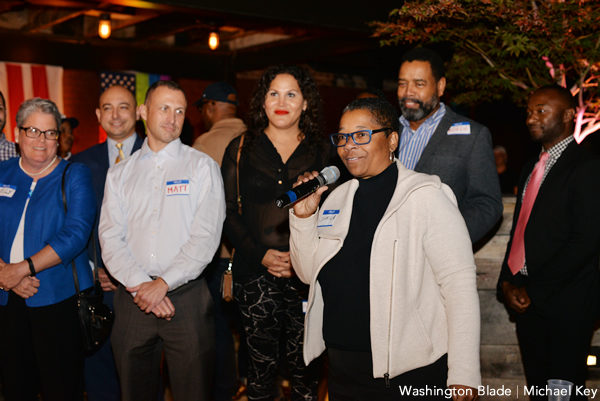
Sheila Alexander-Reid (Washington Blade photo by Michael Key)
Best Real Estate Agent
Michael Fowler, Compass
Runner-up: Jeff Taylor, Sotheby’s
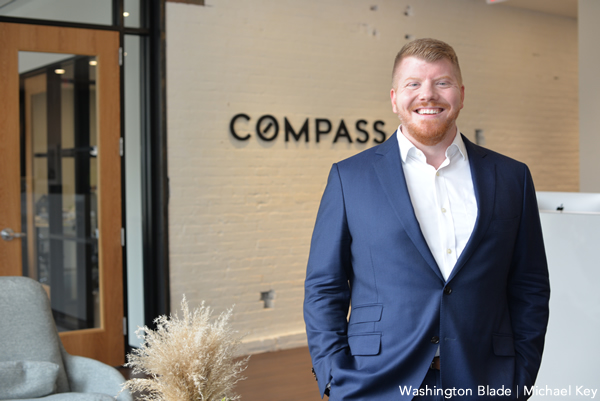
Michael Fowler (Washington Blade photo by Michael Key)
Best Real Estate Group
The Evan and Mark Team, Compass
Runner-up: Ray Gernhart and Associates Re/Max
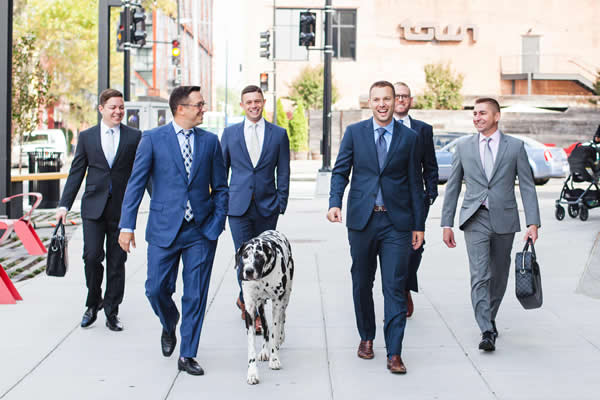
The Evan and Mark Team of Compass (Photo courtesy the Team)
Best Rehoboth Real Estate Agent
Chris Beagle
Berkshire Hathaway Gallo Realty
gotogallo.com
(Also won this category last year)
Runner-up: Jack Lingo
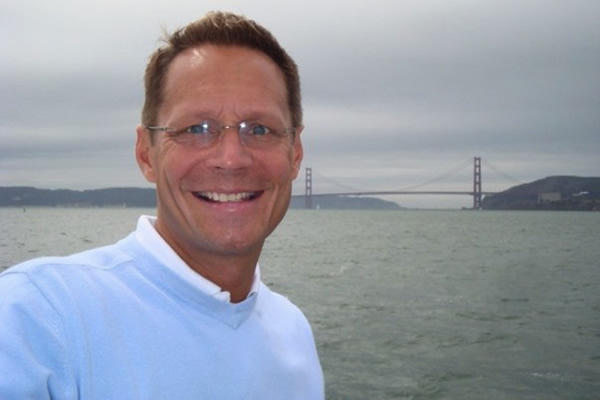
Chris Beagle (Photo courtesy of Beagle)
Best Straight Ally
Hillary Clinton
Runner-up: Leigh Ann Hendricks
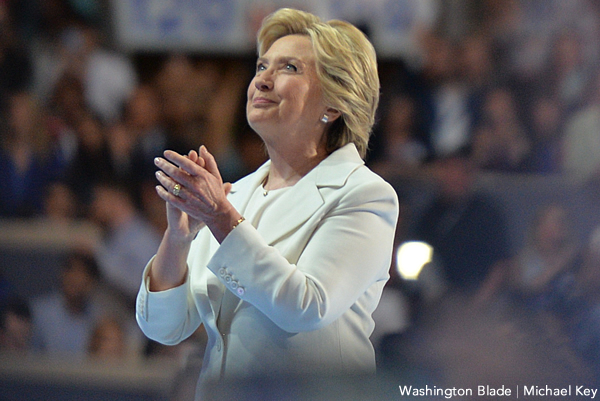
Sec. Hillary Clinton (Washington Blade photo by Michael Key)
Best Trans Advocate
Sarah McBride
Runner-up: Ruby Corado
Sarah McBride in July became the first openly transgender person to speak at a major party convention, but her advocacy efforts began long before she took to the podium at the Democratic National Convention in Philadelphia.
McBride came out as trans in 2012 when she was the student body president of American University.
The Wilmington, Del., native had been involved with Equality Delaware, a statewide LGBT advocacy group, for several years. She joined the organization’s board of directors after she came out.
McBride testified three times in support of the bill that added gender identity to Delaware’s anti-discrimination and hate crimes law. Gov. Jack Markell said after he signed the measure in 2013 that his former intern “courageously stood before the General Assembly.”
McBride made national headlines in April when she posted a picture of herself on Instagram inside a women’s bathroom in North Carolina. The state’s governor, Pat McCrory, had just signed House Bill 2, which prohibits trans people from using public restrooms that are consistent with their gender identity and bans local municipalities from enacting LGBT-inclusive nondiscrimination measures.
“Trying to pee in peace,” wrote McBride in her post. “Trying to live our lives as fully and authentically as possible. Barring me from this restroom doesn’t help anyone. And allowing me to continue to use this bathroom — just without fear of discrimination and harassment — doesn’t hurt anyone. Stop this. We are good people.”
McBride, who supports Hillary Clinton, worked at the Center for American Progress until she became a spokesperson for the Human Rights Campaign in June. She remains humble about her advocacy efforts.
“ I feel incredibly privileged to be a part of this community and this movement, especially at such an important time,” McBride says. “There are so many amazing trans advocates doing lifesaving work across the country.”
“This has been a tough year for transgender people, particularly in states like Mississippi, Texas and North Carolina, but I hope they know that there are so many people who see them, who care for them, and who are fighting to make this world a little kinder and safer for all of us.” (Michael K. Lavers)

Sarah McBride speaks at the Democratic National Convention. (Blade photo by Michael Key)
Best Stylist
Quency Valencia
Salon Quency
1534 U St., N.W.
202-930-7008
Runner-up: Ryan Payne, Bang Salon
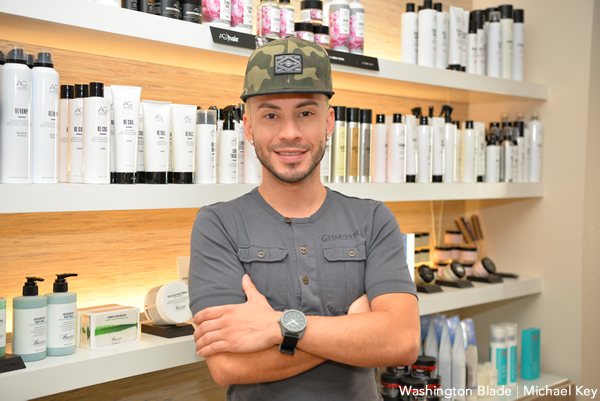
Quincy Figueroa (Washington Blade photo by Michael Key)
To see winners in other categories in the Washington Blade’s Best of Gay D.C. 2016 Awards, click here.
a&e features
Transmission DC breathes new life into a storied sound space
A fresh home for boundary-pushing culture on H Street

Late last year, phoenix-style, a fresh home for boundary-pushing culture arose on the H Street corridor. Transmission DC – a queer, trans, and POC-owned, operated, and centered community-focused venue – powered on in the former home to the Rock & Roll Hotel (famously, not a hotel, but very much rock & roll). Transmission (1353 H St., N.E.) arrives secure in its mandate – or even birthright – to provide a place to celebrate creativity and music through a lens of inclusivity and respect.
Transmission’s team brings experience, but also representation. Owners/partners Kabir Khanna (who is also programming director), Katii B, Ellie McDyre, and Kelli Kerrigan together previously managed 618 productions, a venue in Chinatown, crafting “some of D.C.’s freakiest parties, raves, and mosh pits” they note.
They packed up operations last fall to a space curated specifically for D.C.’s underground music and culture scene, building their efforts in Chinatown to bring in more fans in queer and POC circles.
Transmission, Khanna points out, is built on DIY values. In the music scene, DIY means that promoters and organizers – often disconnected from the mainstream and part of marginalized communities – build shows and programs collaboratively, but independently from institutions, supporting each other as smaller, independent venues close. Here, Transmission aims to ensure that those putting together these underground inclusive shows have a more permanent and stable home, can have access to resources, and can provide more sustainable income to artists. “We’re trying to get more people to support and enjoy the music, and also give artists and organizers within the DIY community more structure and a larger cut,” says Khanna.
Khanna also notes that Transmission operates “under the principles of safety, inclusivity, and respect.” McDyre added that even at venues that claim inclusivity, that statement might not take place in practice. We’re “not just pitting up a rainbow flag,” says McDyre, but as some of the owners are trans and POC, audiences can see themselves reflected at the top.
Much like the DIY nature of the music community, the Transmission owners brought a DIY ethos to turning around their space.
In March 2020 – the height of COVID lockdowns – Rock & Roll Hotel suddenly shuttered, though not due to the pandemic; instead, the venue claimed that decreasing sales and increasing competition led to the closure. For 14 years, it was the central spot for cheap beer and lesser-known and celebrated acts. The space stood vacant for more than five years, until Transmission turned the power back on.
“When we got into the space, it was effectively abandoned for years,” says Khanna. “There was a ton of mold, and paint primer covering all surfaces. It was nearly falling apart.” Khanna noted that many music venues like this one, regardless of how well it was maintained, “get the shit kicked out of it,” given the nature of shows. The team called in mold removal contractors, ripped up most of the floorboards, and started fresh.
Transmission’s first floor is styled as a stripped-down black box: the better to take in the music. “It’s minimal on purpose to act as a canvas for set design and music,” without a specific aesthetic, says Khanna. Moving upstairs, the second floor has been opened up, removing some walls, and now has a larger dance area than the first floor. Beyond the first two performance levels, and a holdover from Rock & Roll Hotel, is the rooftop. Though without a stage, the rooftop space is filled with murals splashed across the walls, with a full bar. Transmission’s current capacity is 496, but the team is looking to grow that number. Transmission will also leverage the full kitchen that Rock & Roll Hotel operated, bringing in Third Hand Kitchen to offer a variety of food, including vegan and vegetarian options.
Khanna pointed out an upcoming show reflective of Transmission’s inclusive ethos: Black Techo Matters on Feb. 27. The event is set to be “a dynamic, collaborative night of underground electronic music celebrating Black History Month.” Khanna says that techno came from Black music origins, and this event will celebrate this genesis with a host of artists, including DJ Stingray 313, Carlos Souffront, and Femanyst.
Movies
Moving doc ‘Come See Me’ is more than Oscar worthy
Poet Laureate Andrea Gibson, wife negotiate highs and lows of terminal illness

When Colorado Poet Laureate Andrea Gibson died from ovarian cancer in the summer of 2025, the news of their passing may have prompted an outpouring of grief from their thousands of followers on social media, but it was hardly a surprise.
That’s because Gibson – who had risen to both fame and acclaim in the early 2000s with intense live performances of their work that made them a “superstar” at Poetry Slam events – had been documenting their health journey on Instagram ever since receiving the diagnosis in 2021. During the process, they gained even more followers, who were drawn in by the reflections and explorations they shared in their daily posts. It was really a continuation, a natural evolution of their work, through which their personal life had always been laid bare, from the struggles with queer sexuality and gender they experienced in their youth to the messy relationships and painful breakups of their adult life; now, with precarious health prohibiting a return to the stage, they had found a new platform from which to express their inner experience, and their fans – not only the queer ones for whom their poetry and activism had become a touchstone, but the thousands more who came to know them through the deep shared humanity that exuded through their online presence – were there for it, every step of the way.
At the same time, and in that same spirit of sharing, there was another work in progress around Gibson: “Come See Me in the Good Light,” a film conceived by their friends Tig Notaro and Stef Willen and directed by seasoned documentarian Ryan White (“Ask Dr. Ruth”, “Good Night, Oppy”, “Pamela, a Love Story”), it was filmed throughout 2024, mostly at the Colorado home shared by Gibson and their wife, fellow poet Megan Falley, and debuted at the 2025 Sundance Film Festival before a release on Apple TV in November. Now, it’s nominated for an Academy Award.
Part life story, part career retrospective, and part chronicle of Gibson and Falley’s relationship as they negotiate the euphoric highs and heartbreaking lows of Gibson’s terminal illness together, it’s not a film to be approached without emotional courage; there’s a lot of pain to be vicariously endured, both emotional and physical, a lot of hopeful uplifts and a lot of crushing downfalls, a lot of spontaneous joy and a lot of sudden fear. There’s also a lot of love, which radiates not only from Gibson and Falley’s devotion and commitment to being there for each other, no matter what, but through the support and positivity they encounter from the extended community that surrounds them. From their circle of close friends, to the health care professionals that help them navigate the treatment and the difficult choices that go along with it, to the extended family represented by the community of fellow queer artists and poets who show up for Gibson when they make a triumphant return to the stage for a performance that everyone knows may well be their last, nobody treats this situation as a downer. Rather, it’s a cause to celebrate a remarkable life, to relish friendship and feelings, to simply be present and embrace the here and now together, as both witness and participant.
At the same time, White makes sure to use his film as a channel for Gibson’s artistry, expertly weaving a showcase for their poetic voice into the narrative of their survival. It becomes a vibrant testament to the raw power of their work, framing the poet as a seminal figure in a radical, feminist, genderqueer movement which gave voice to a generation seeking to break free from the constraints of a limited past and imagine a future beyond its boundaries. Even in a world where queer existence has become – yet again – increasingly perilous in the face of systemically-stoked bigotry and bullying, it’s a blend that stresses resilience and self-empowerment over tragedy and victimhood, and it’s more than enough to help us find the aforementioned emotional courage necessary to turn what is ultimately a meditation on dying into a validation of life.
That in itself is enough to make “Come See Me in the Good Light” worthy of Oscar gold, and more than enough to call it a significant piece of queer filmmaking – but there’s another level that distinguishes it even further.
In capturing Gibson and Falley as they face what most of us like to think of as an unimaginable future, White’s quietly profound movie puts its audience face-to-face with a situation that transcends all differences not only of sexuality or gender, but of race, age, or economic status as well. It confronts us with the inevitability few of us are willing to consider until we have to, the unhappy ending that is rendered certain by the joyful beginning, the inescapable conclusion that has the power to make the words “happily ever after” feel like a hollow promise. At the center of this loving portrait of a great American artist is a universal story of saying goodbye.
Yes, there is hope, and yes, good fortune often prevails – sometimes triumphantly – in the ongoing war against the cancer that has come to threaten the palpably genuine love this deeply-bonded couple has found together; but they (and we) know that, even in the best-case scenario, the end will surely come. All love stories, no matter how happy, are destined to end with loss and sorrow; it doesn’t matter that they are queer, or that their gender identities are not the same as ours – what this loving couple is going through, together, is a version of the same thing every loving couple lucky enough to hold each other for a lifetime must eventually face.
That they meet it head on, with such grace and mutual care, is the true gift of the movie.
Gibson lived long enough to see the film’s debut at Sundance, which adds a softening layer of comfort to the knowledge we have when watching it that they eventually lost the battle against their cancer; but even if they had not, what “Come See Me in the Good Light” shows us, and the unflinching candor with which it does so, delivers all the comfort we need.
Whether that’s enough to earn it an Oscar hardly matters, though considering the notable scarcity of queer and queer-themed movies in this year’s competition it might be our best shot at recognition.
Either way, it’s a moving and celebratory film statement with the power to connect us to our true humanity, and that speaks to a deeper experience of life than most movies will ever dare to do.
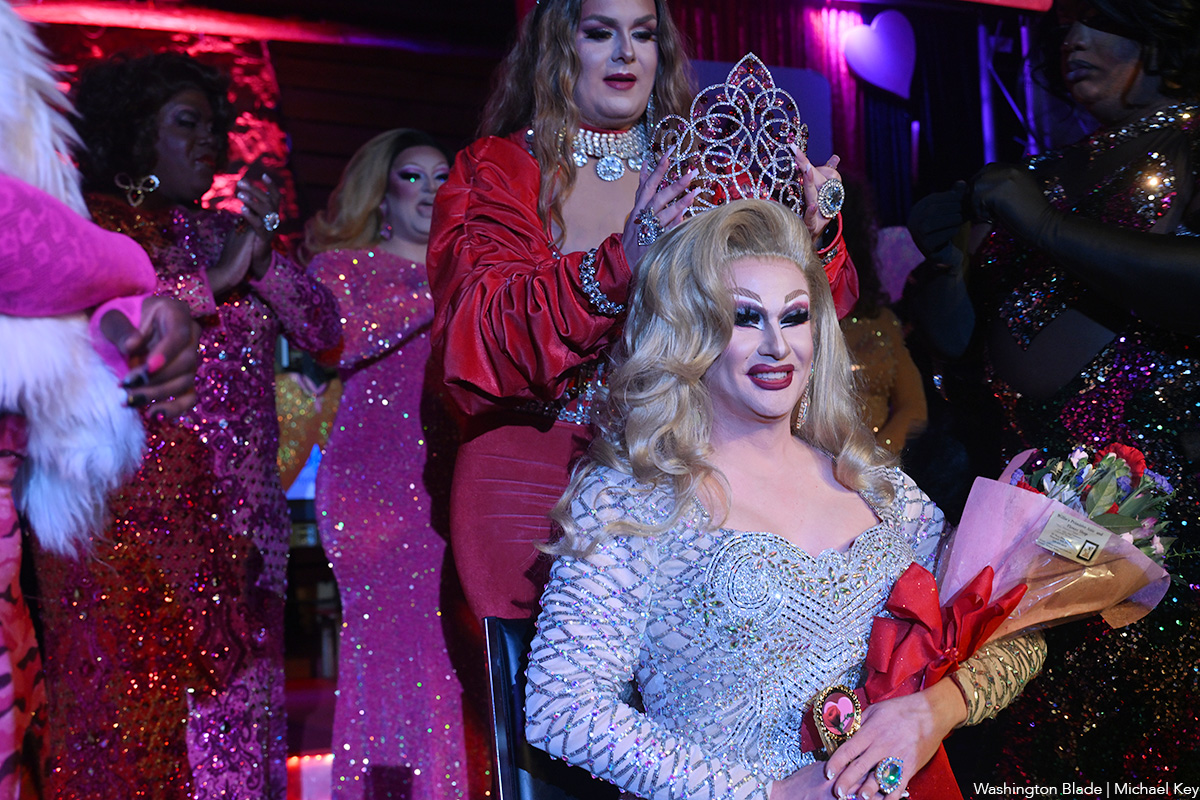
The 44th annual Queen of Hearts pageant was held at The Lodge in Boonsboro, Md. on Friday, Feb. 20. Six contestants vied for the title and Bev was crowned the winner.
(Washington Blade photos by Michael Key)
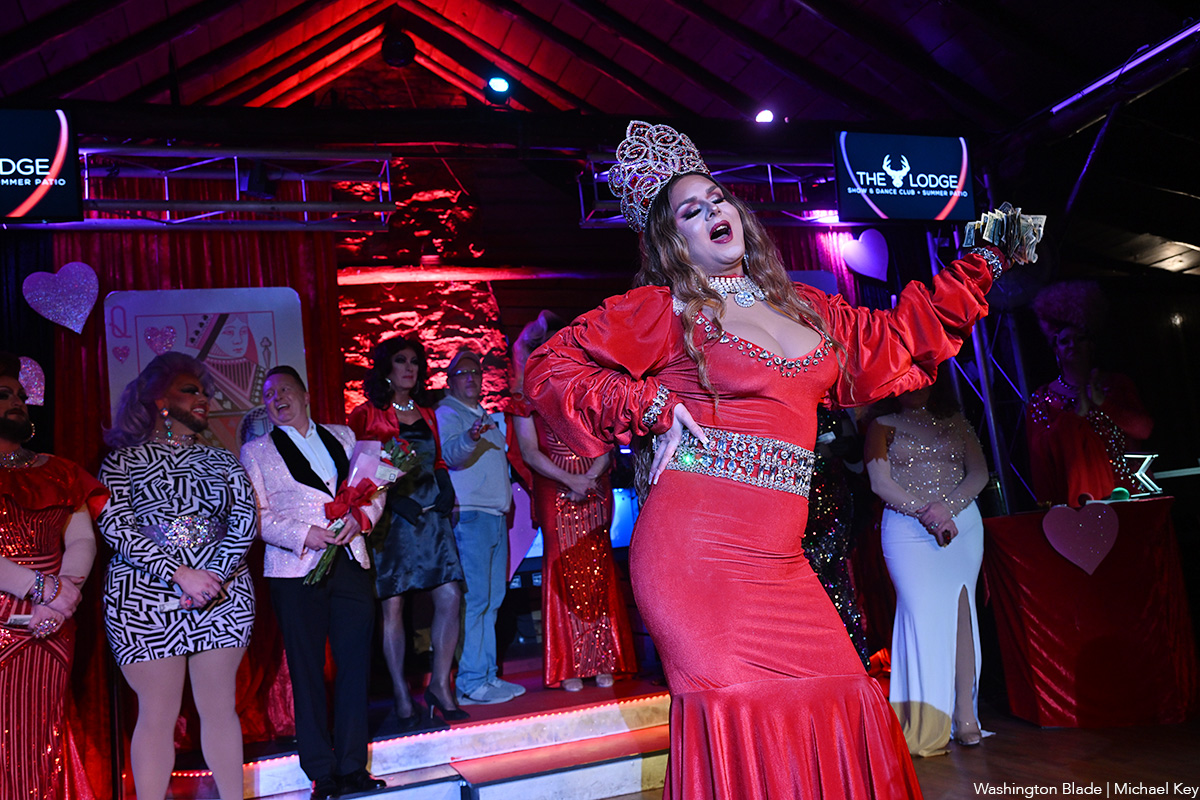
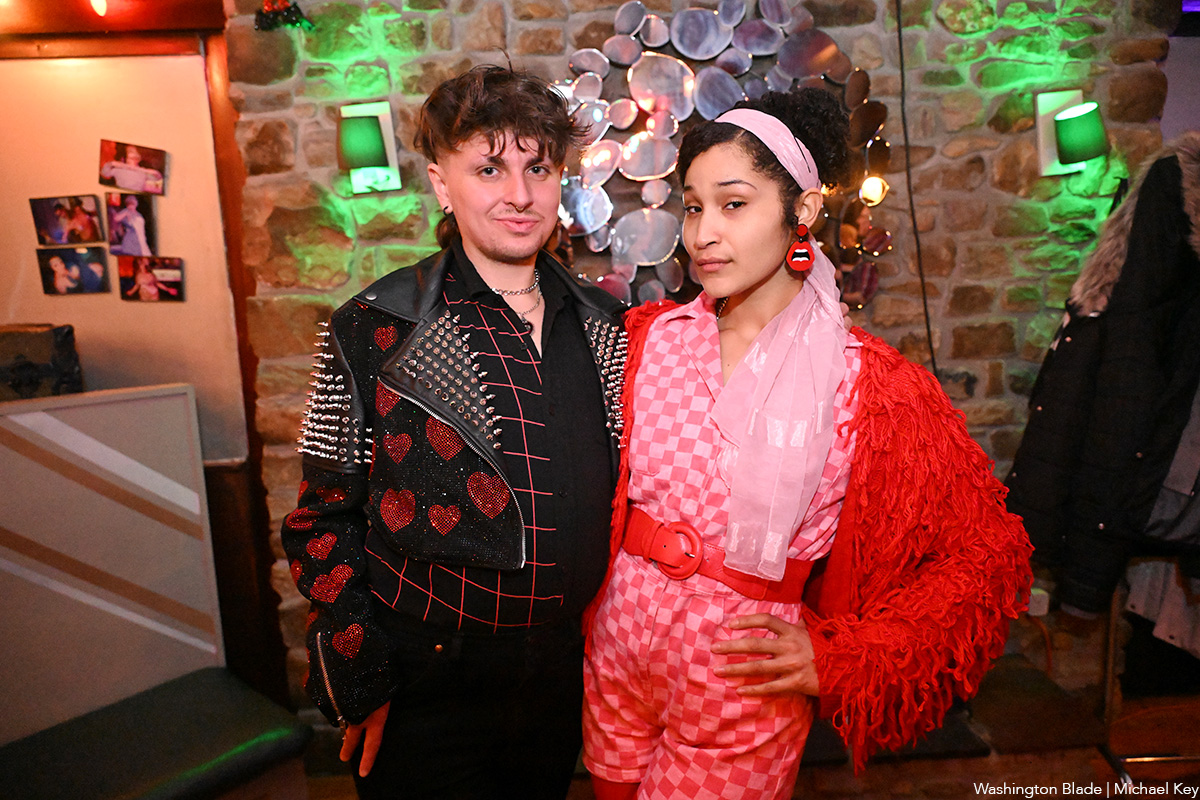
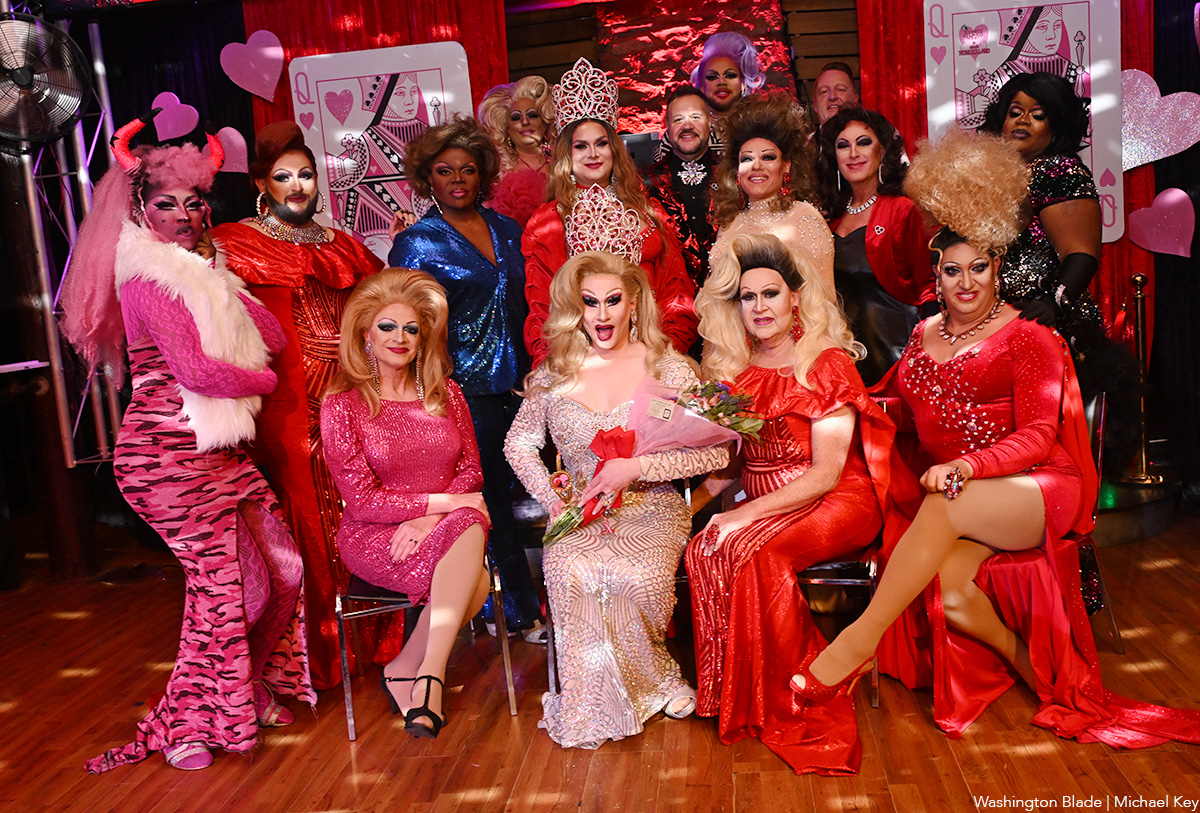
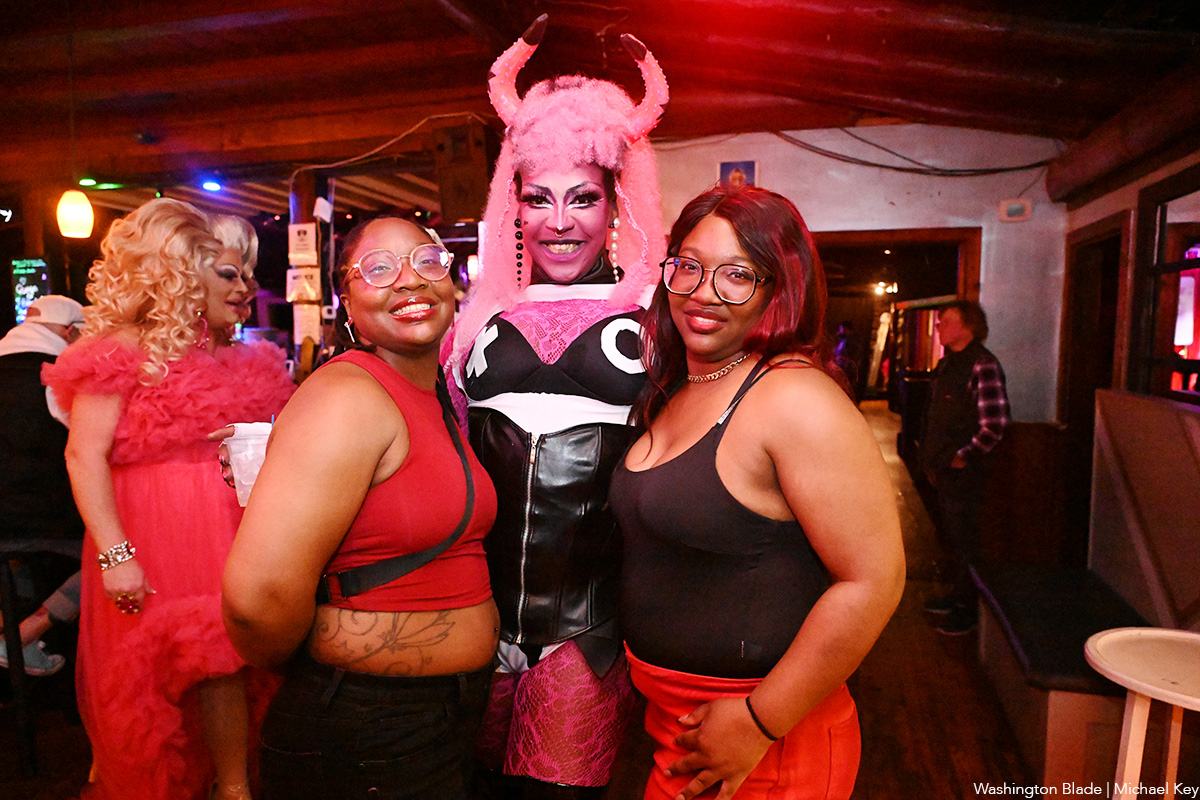
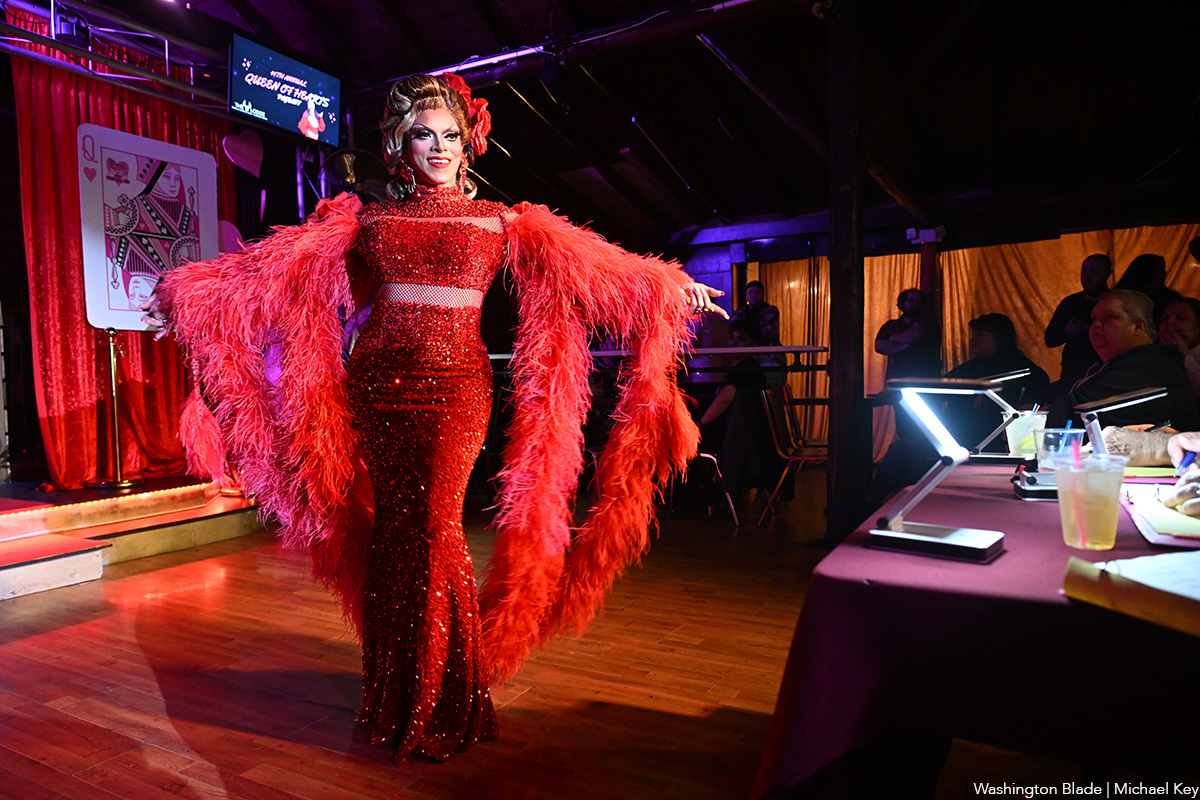
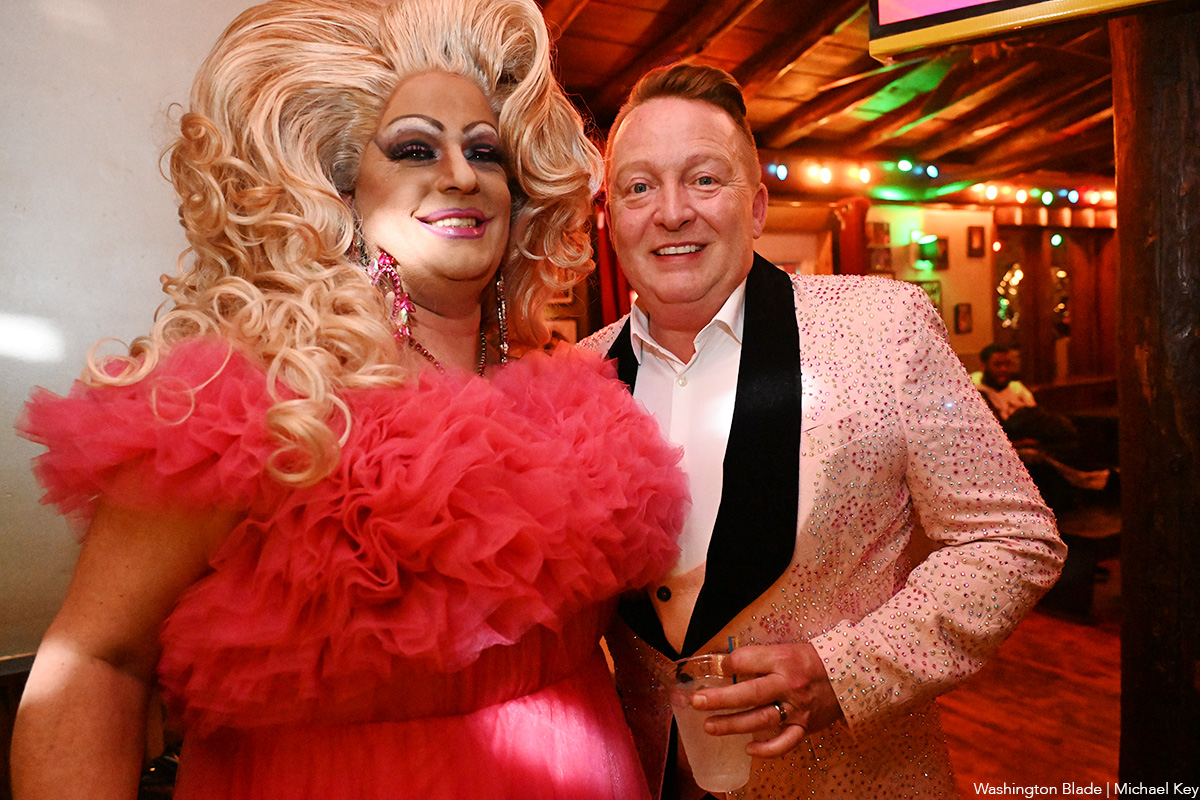
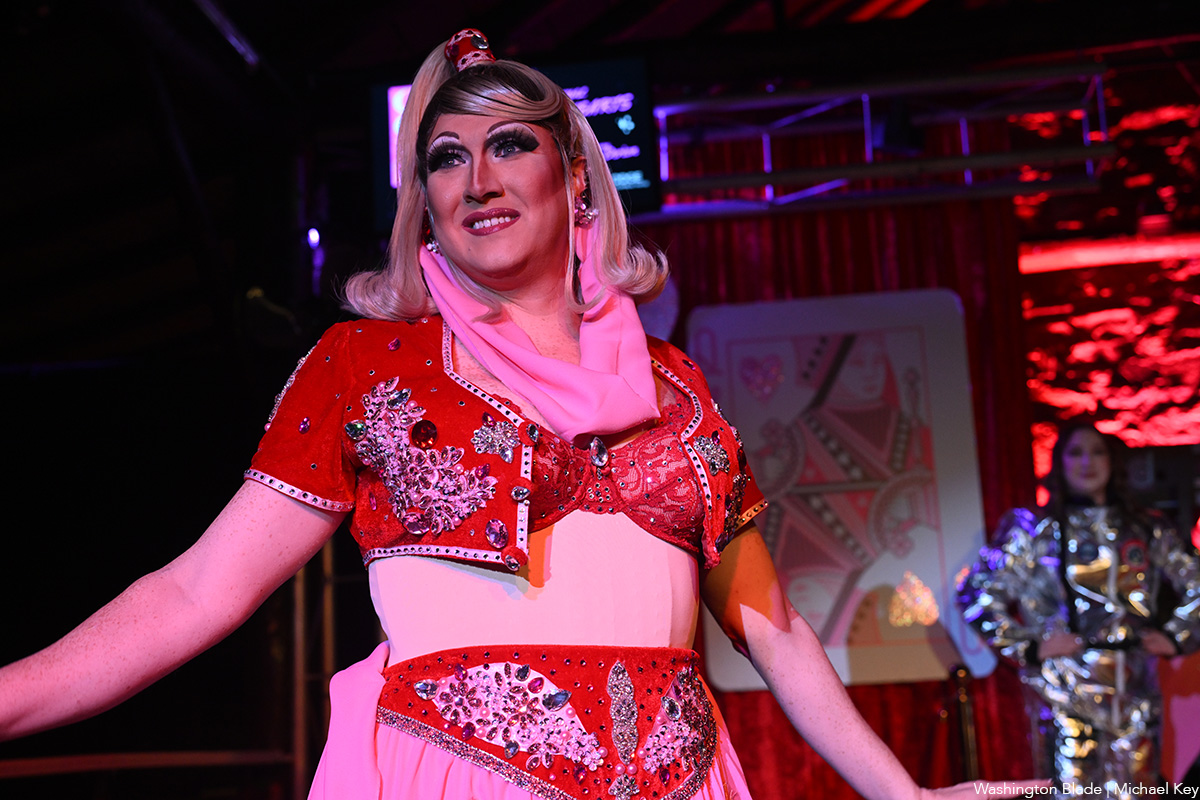
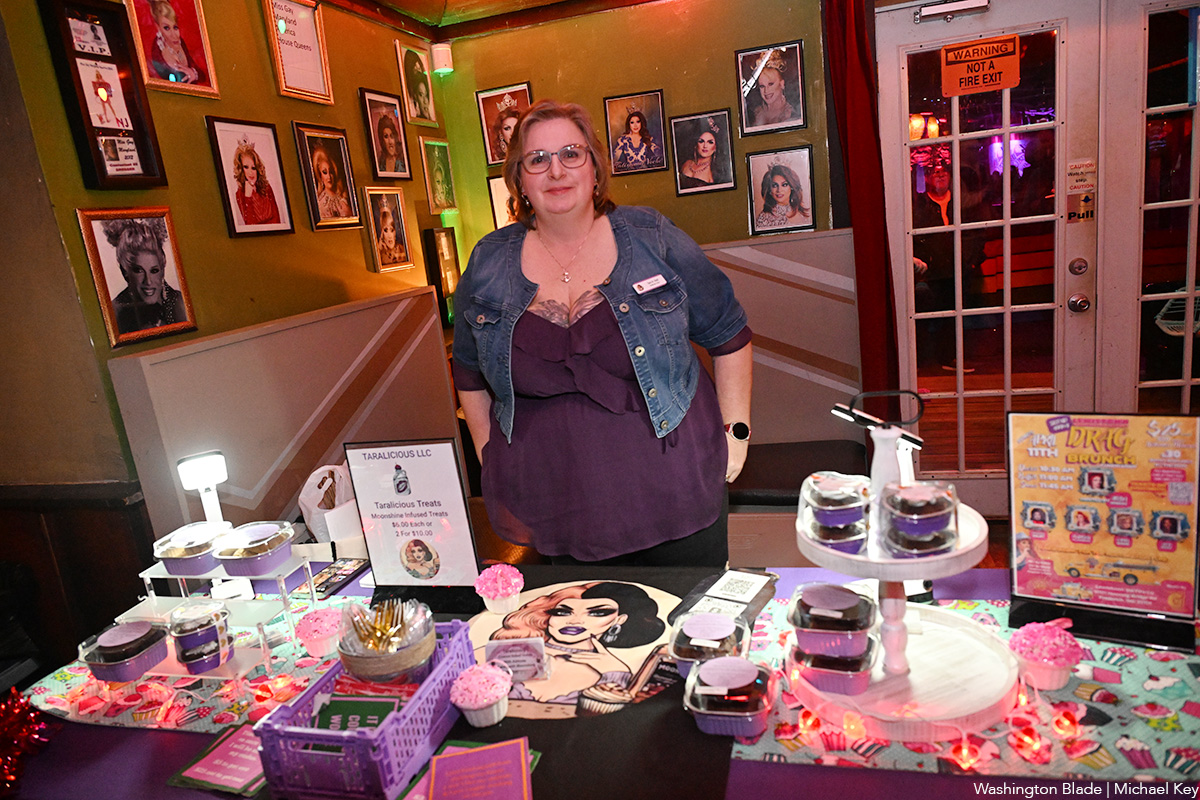
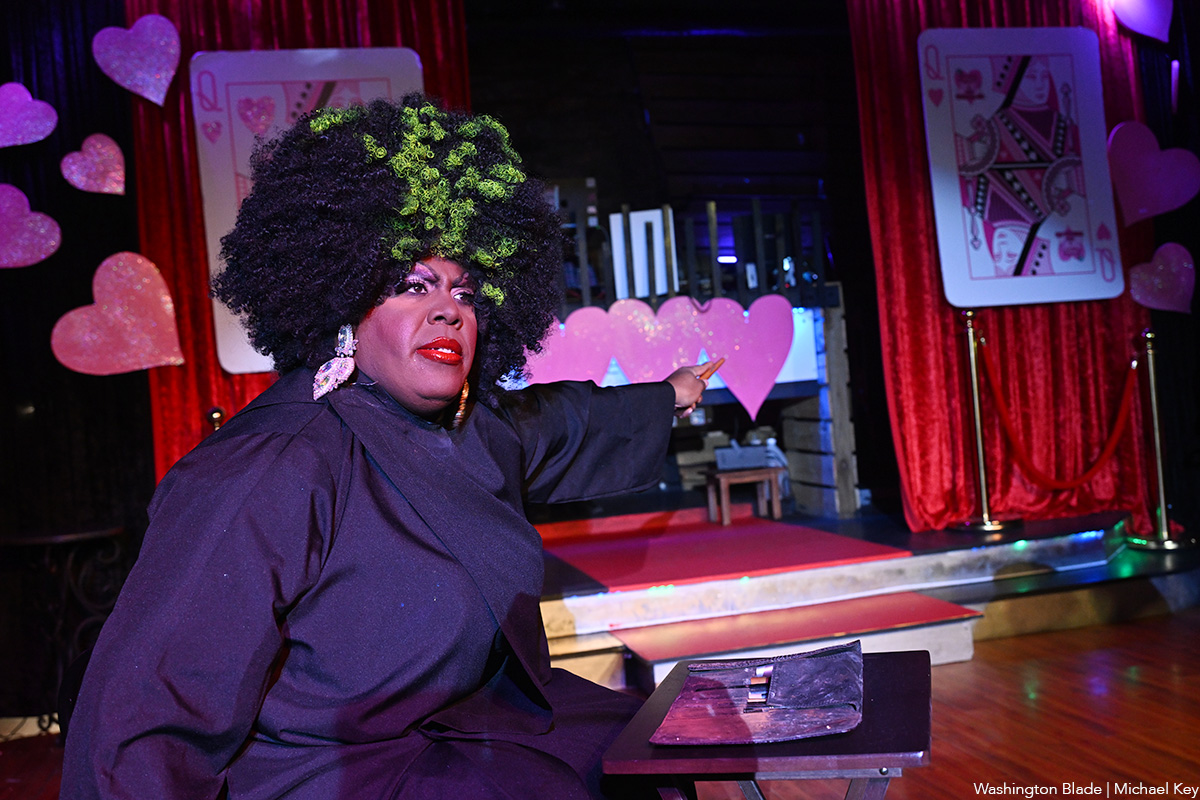
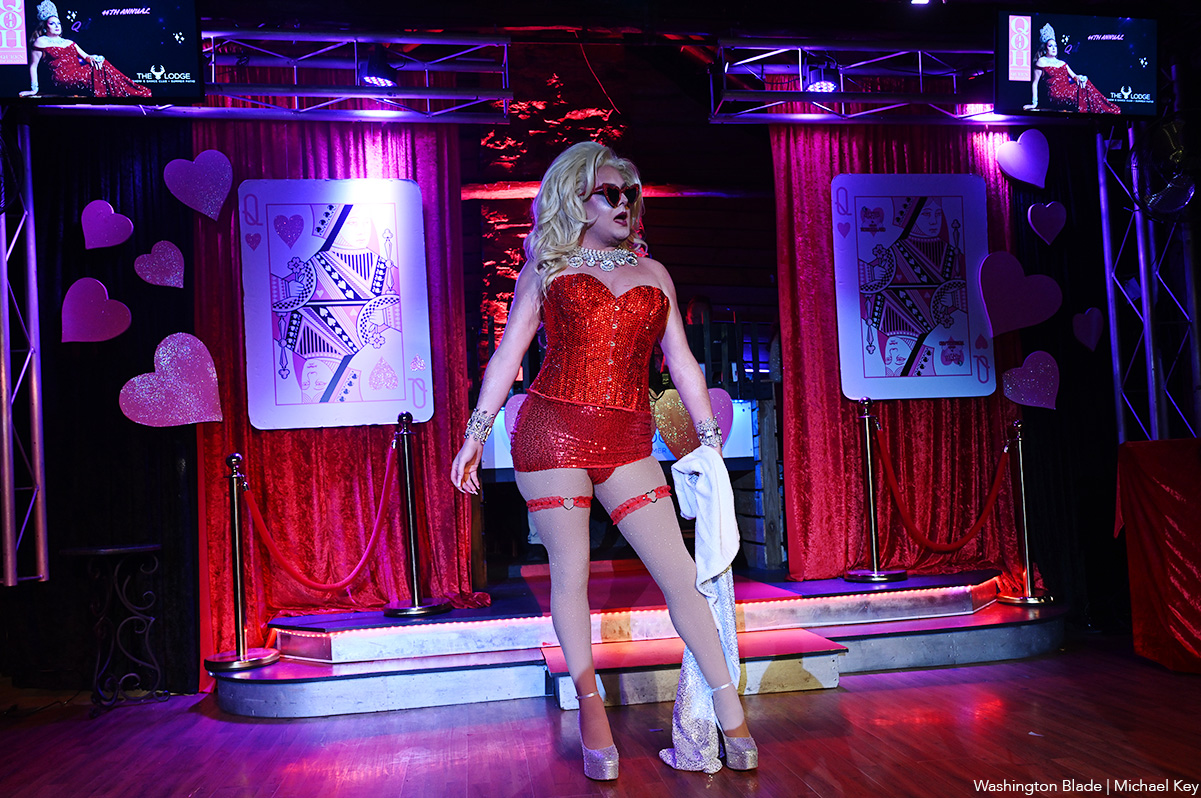
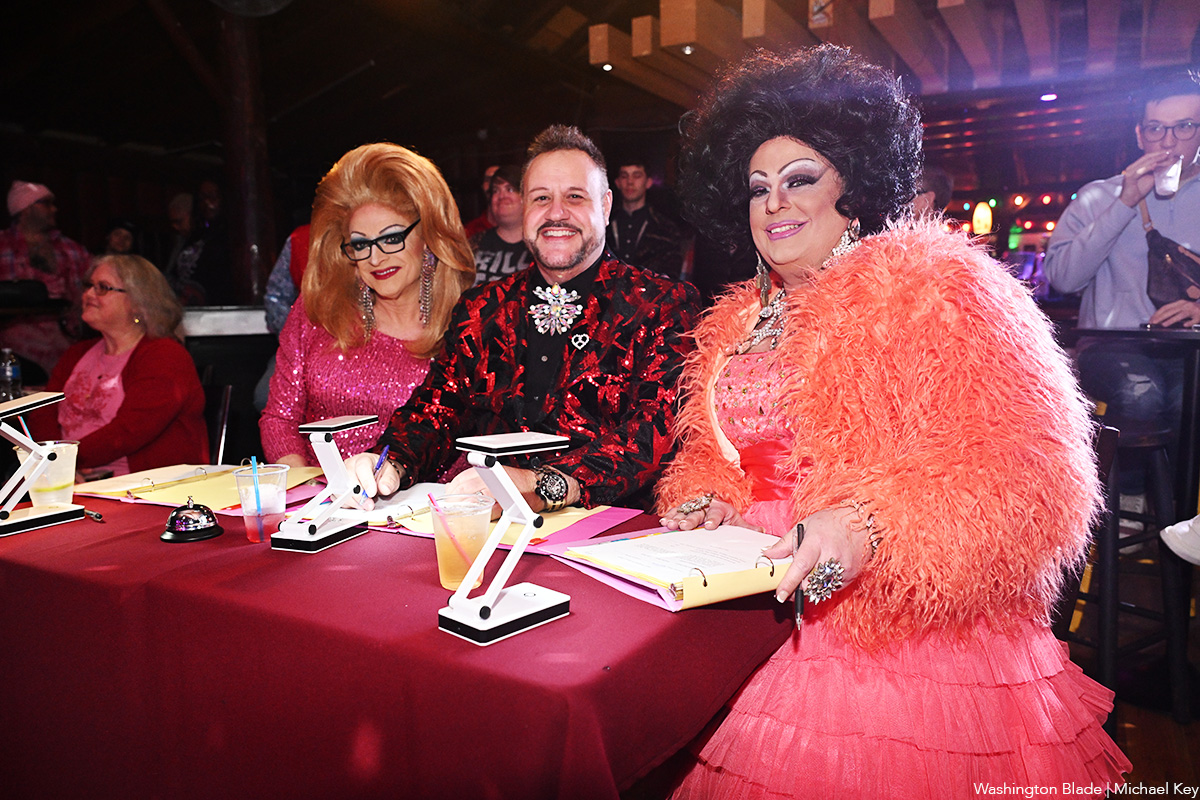
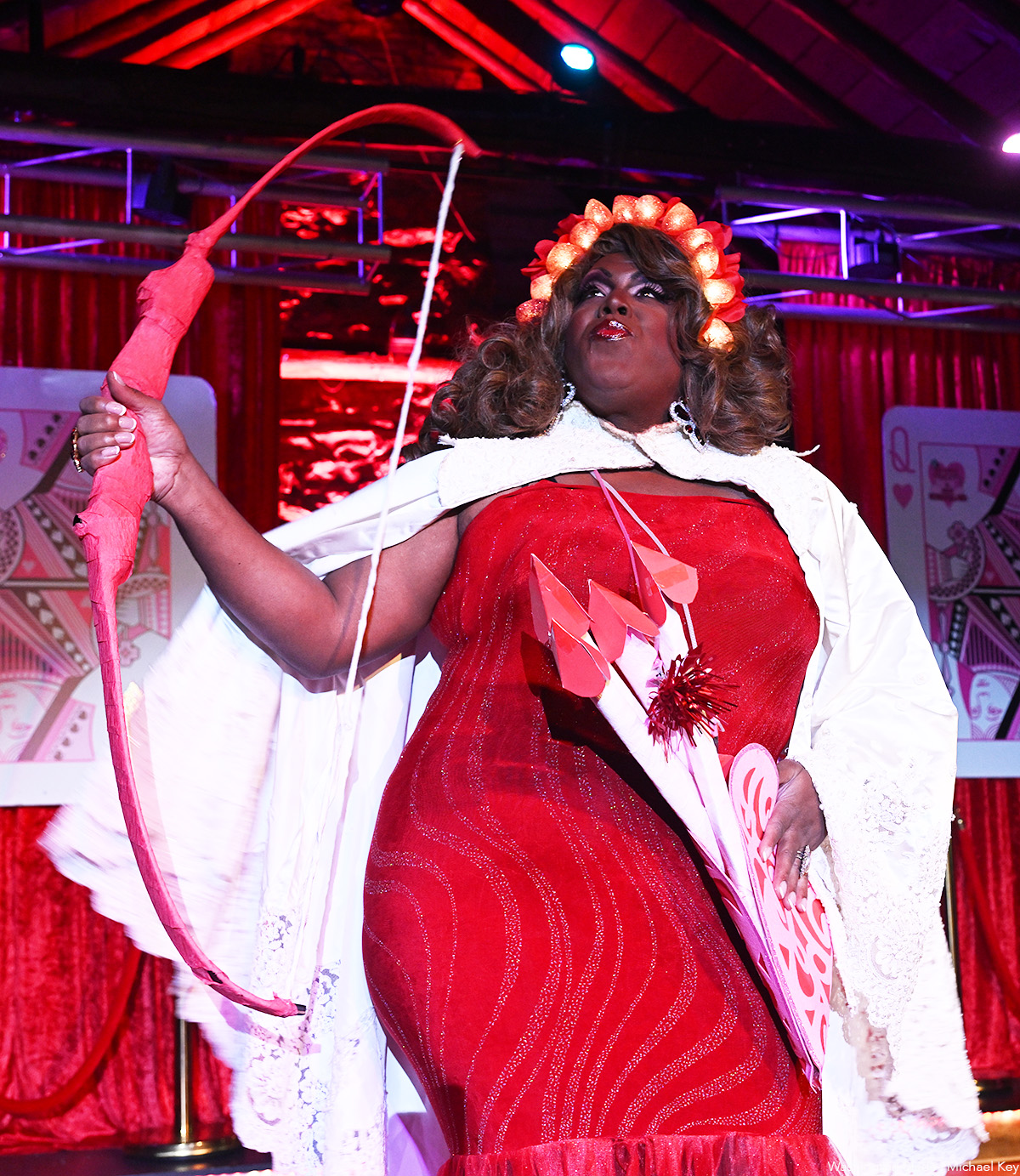
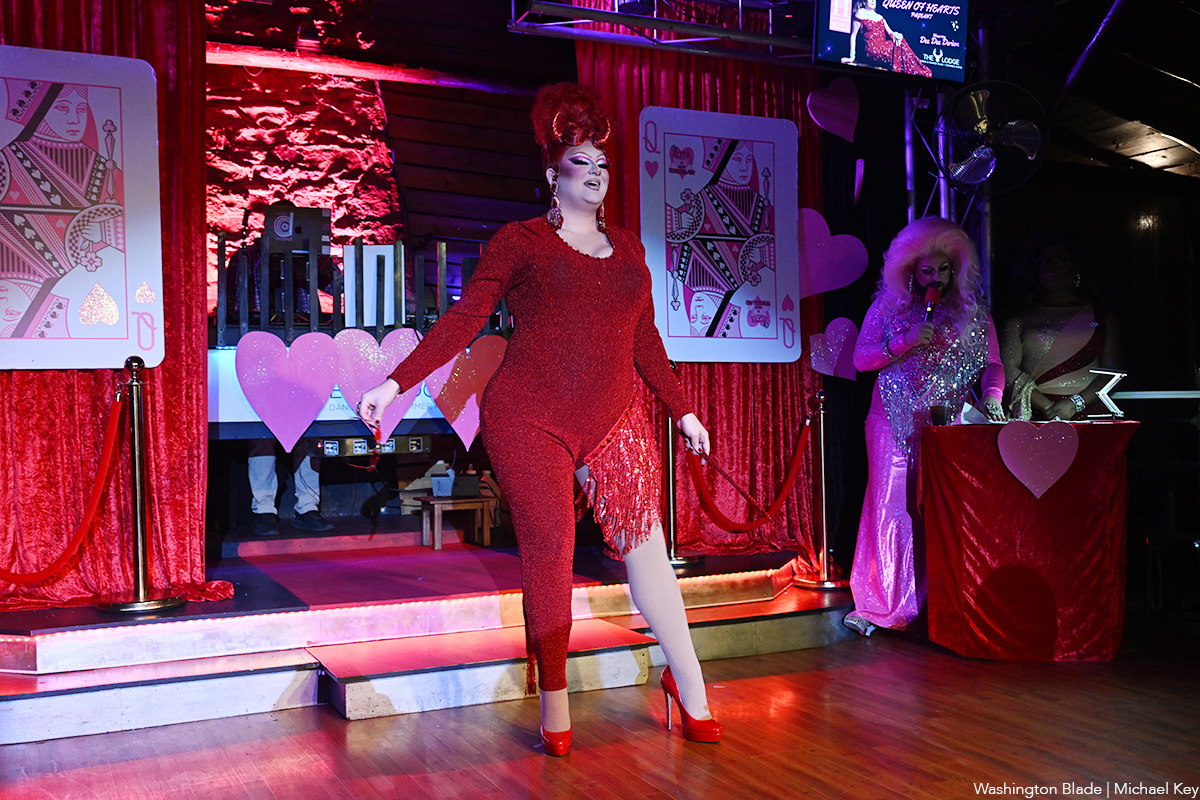
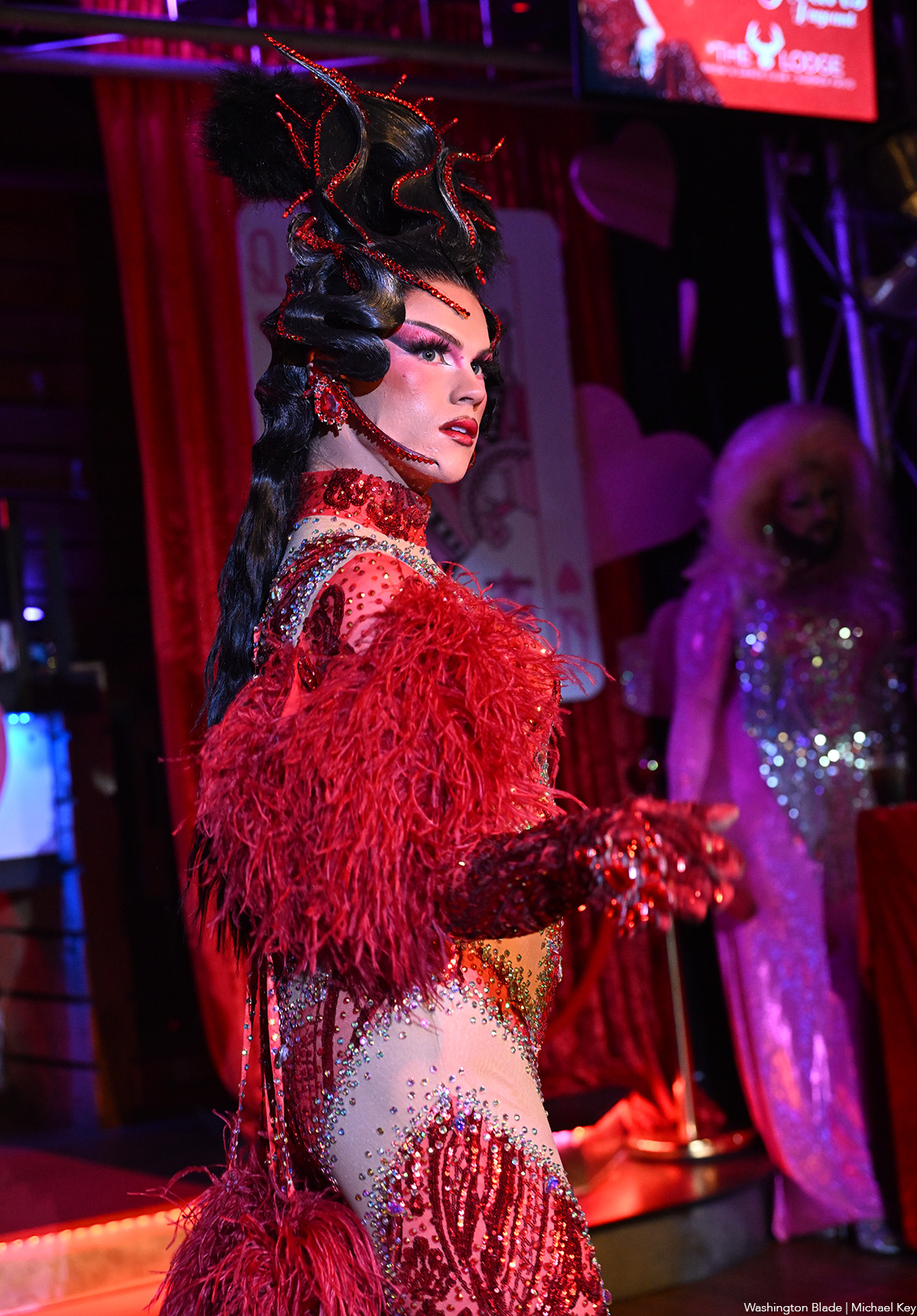
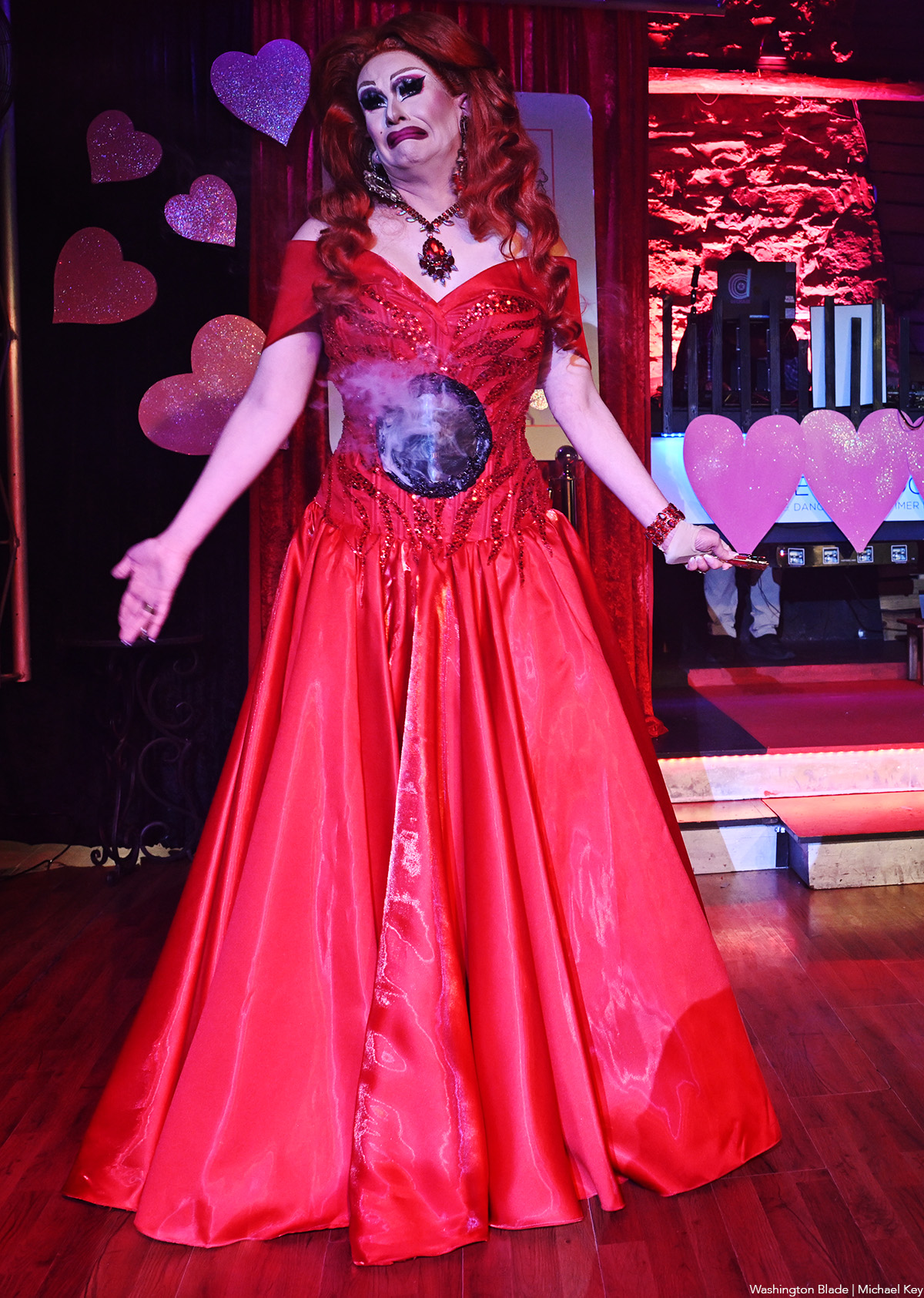
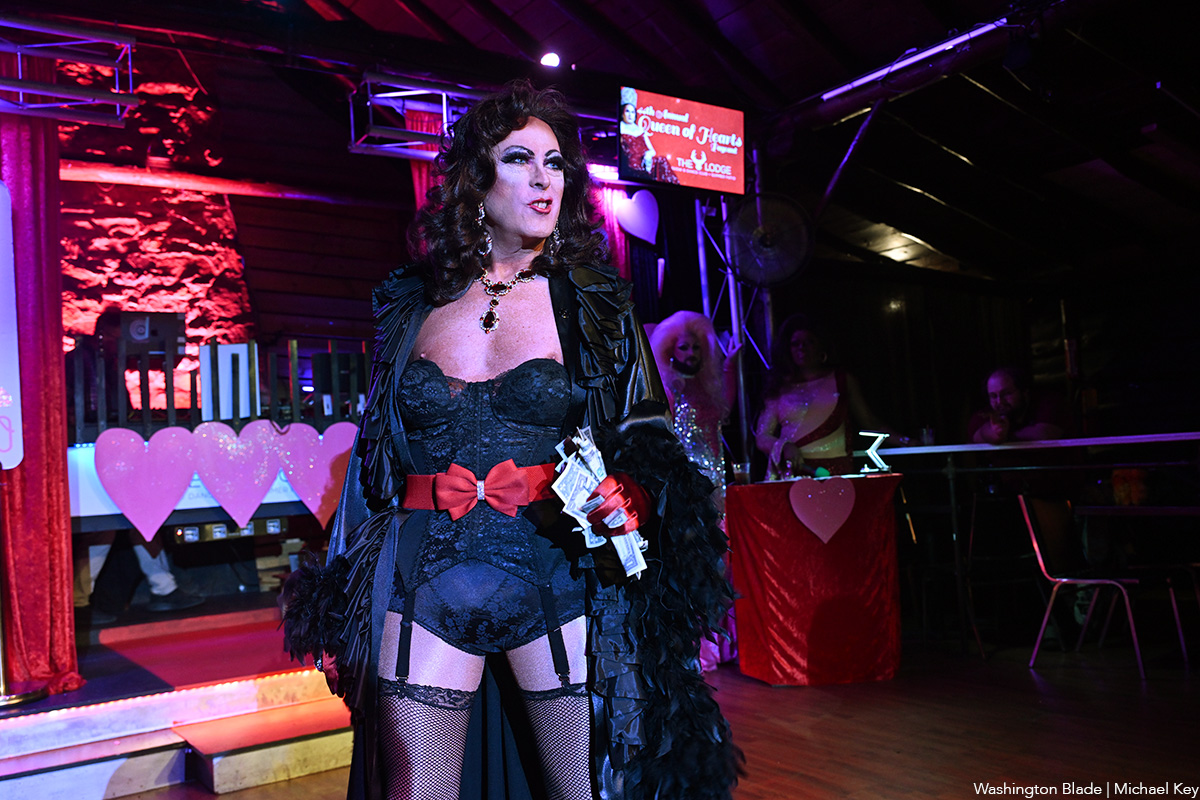
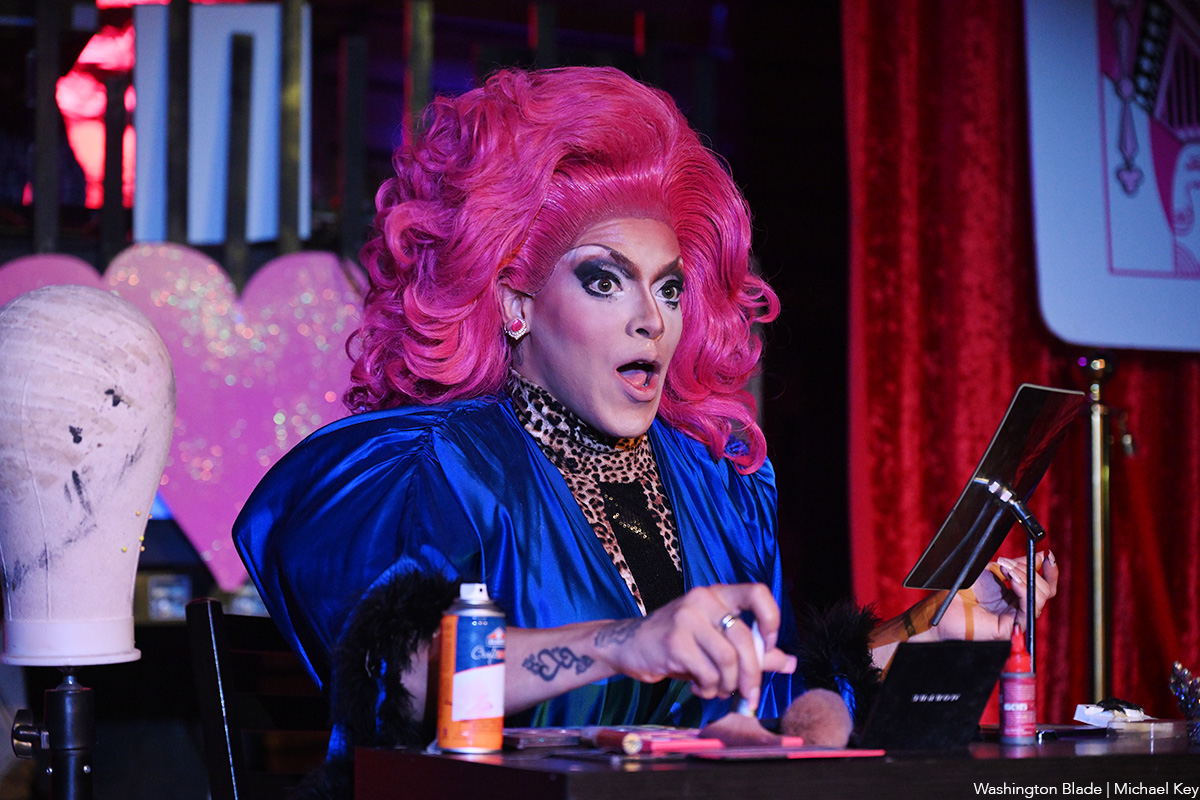
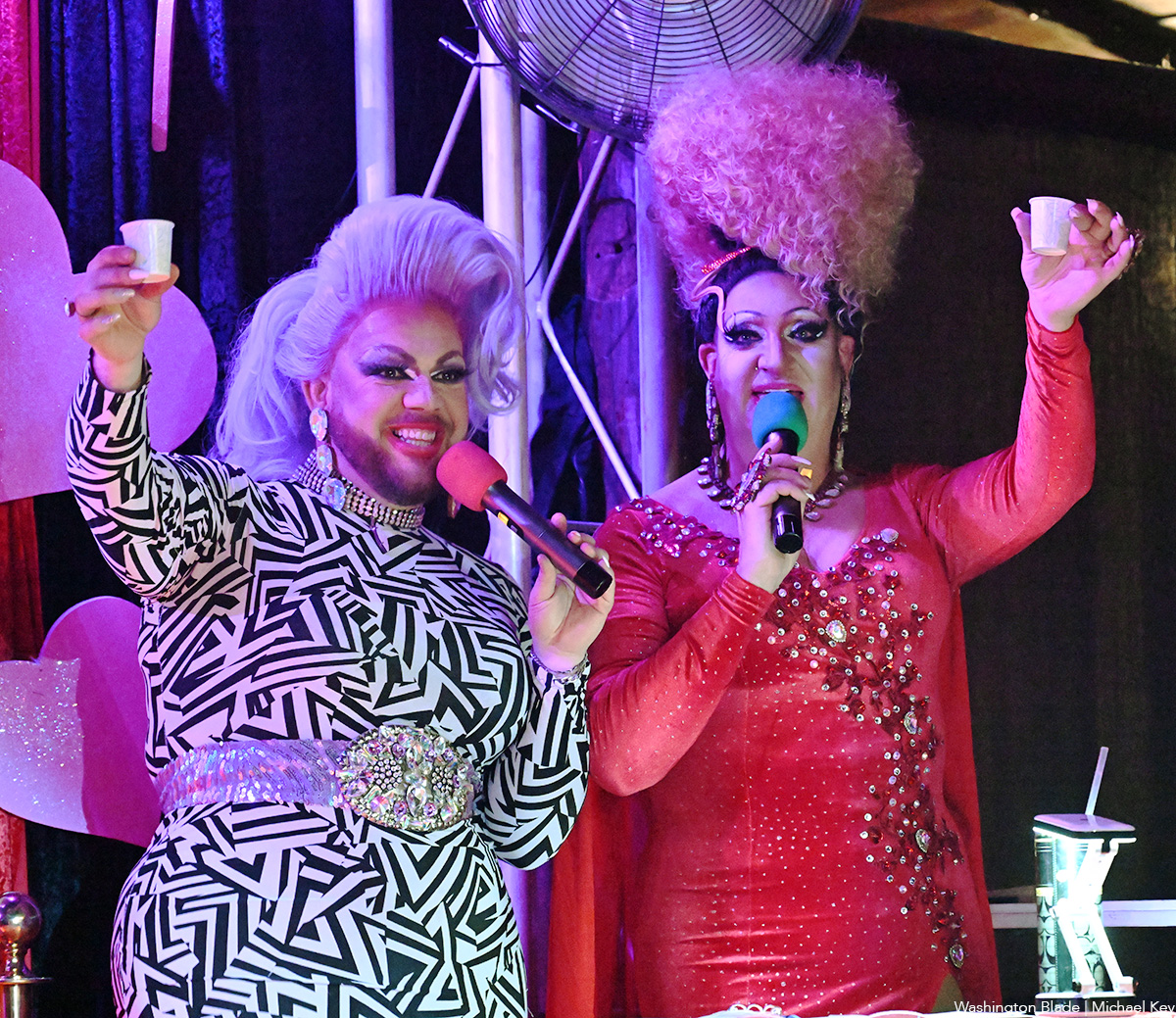
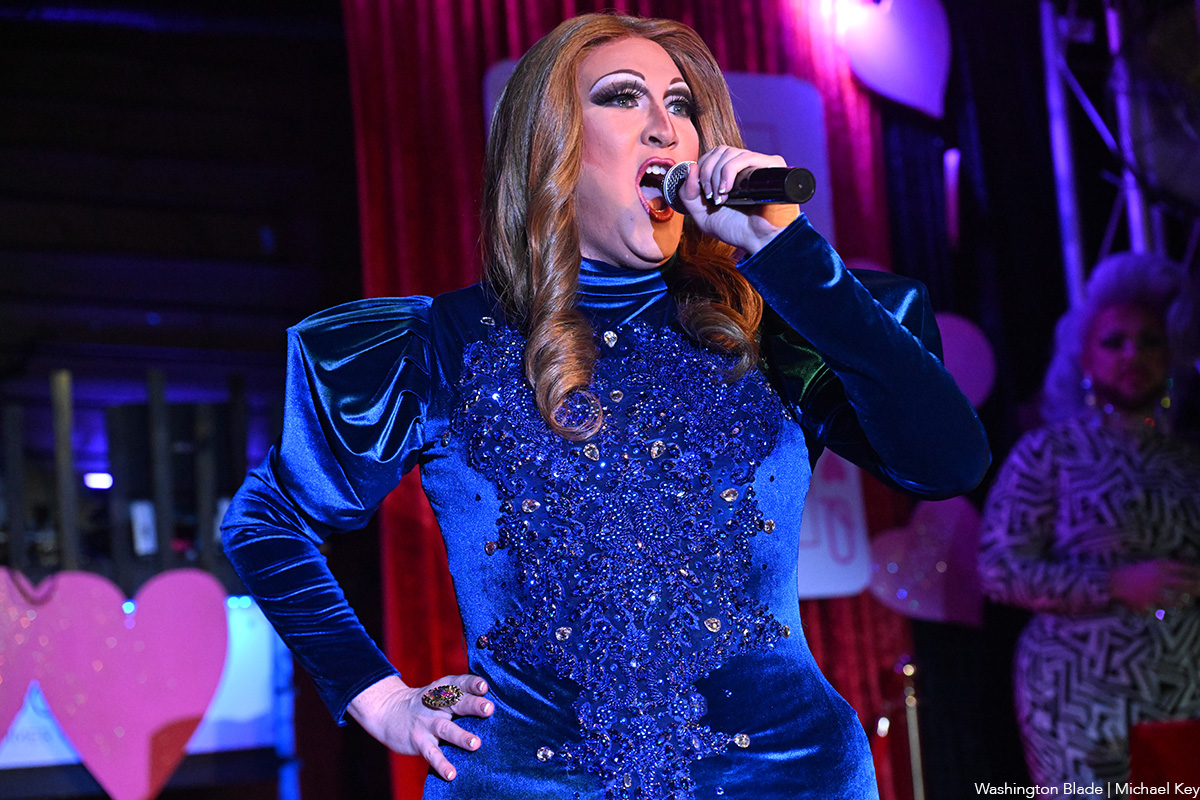
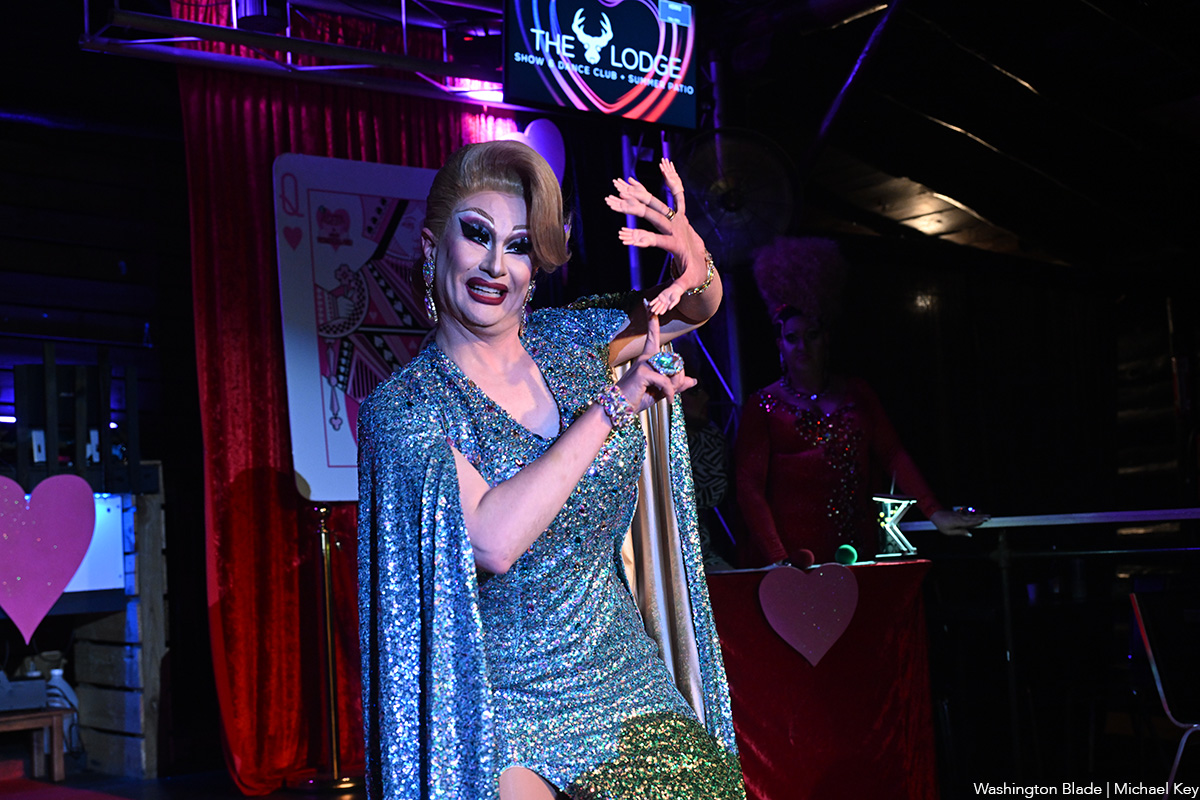
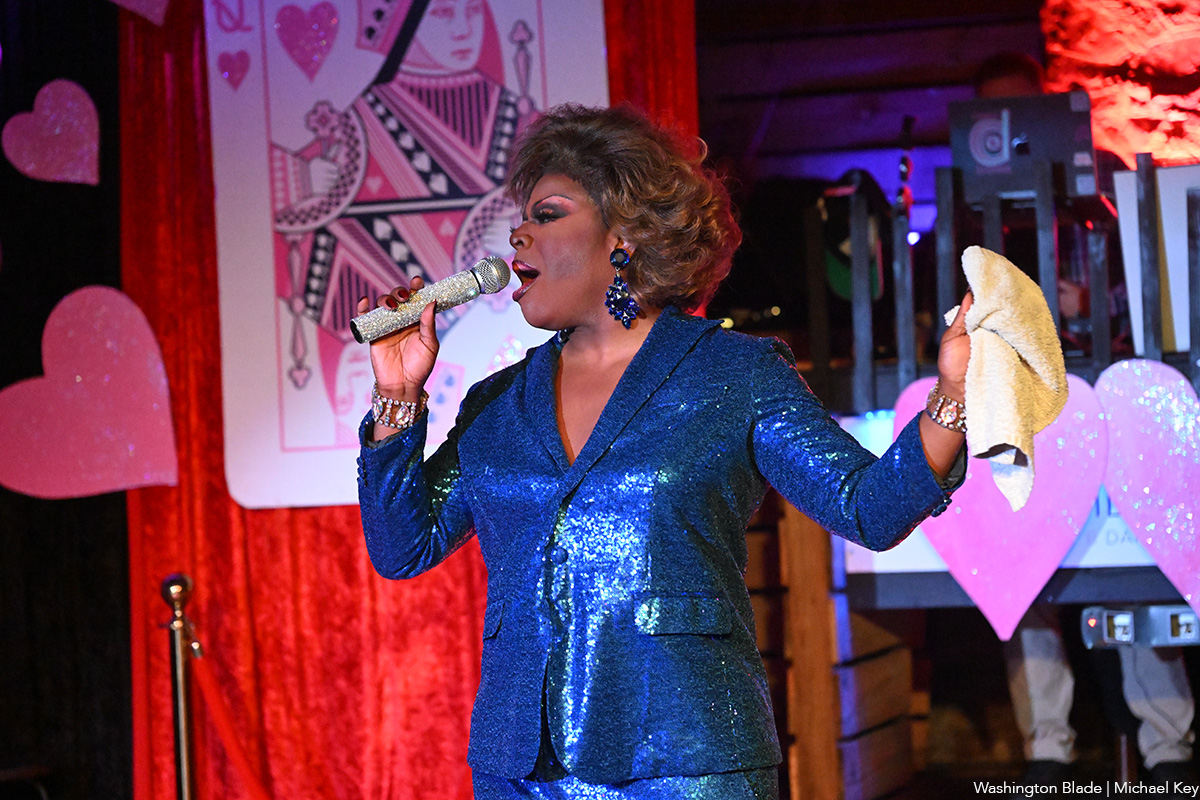
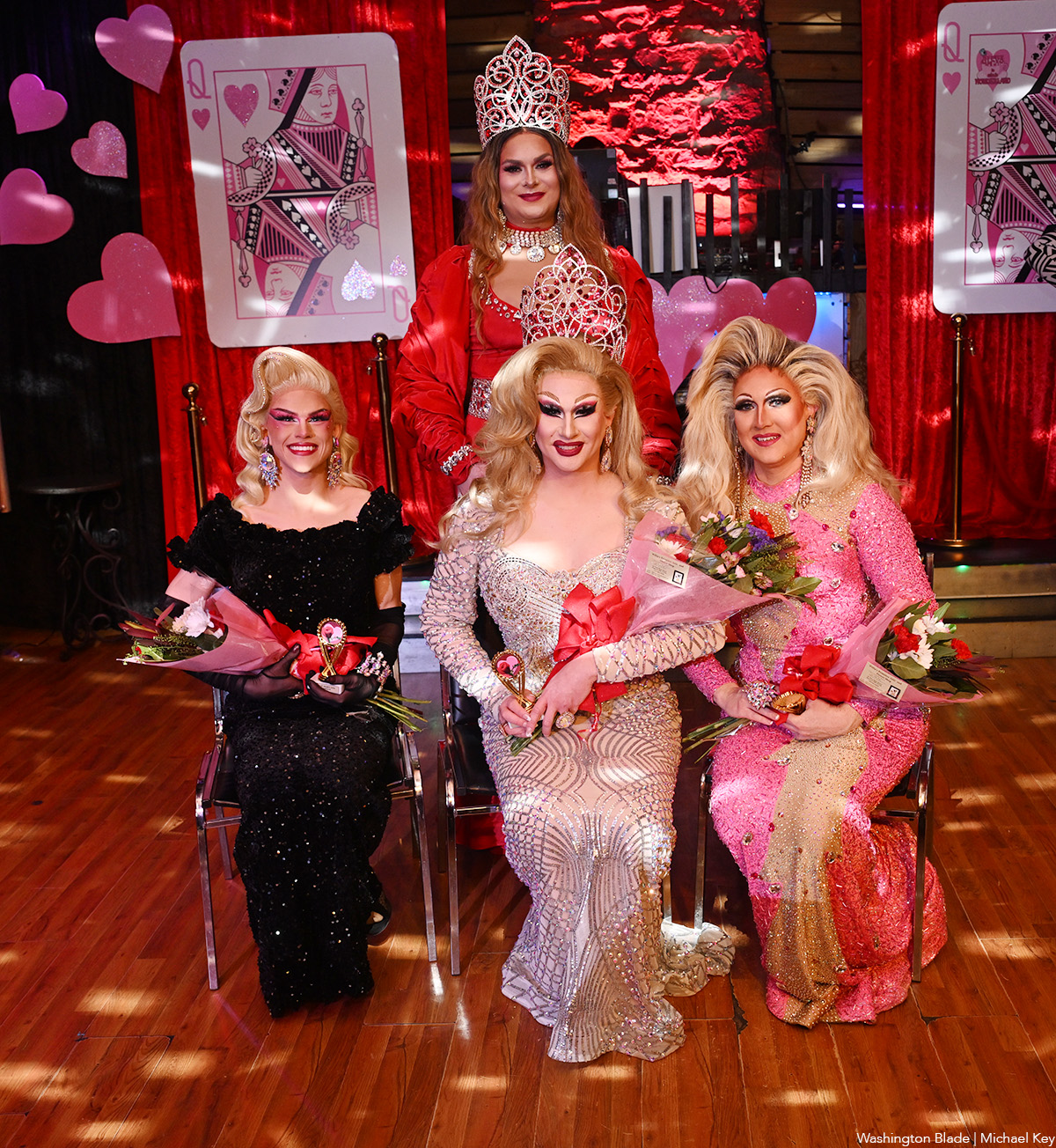
View on Threads
-

 Mexico4 days ago
Mexico4 days agoUS Embassy in Mexico issues shelter in place order for Puerto Vallarta
-

 Real Estate4 days ago
Real Estate4 days ago2026: prices, pace, and winter weather
-

 Theater4 days ago
Theater4 days agoJosé Zayas brings ‘The House of Bernarda Alba’ to GALA Hispanic Theatre
-

 Netherlands4 days ago
Netherlands4 days agoRob Jetten becomes first gay Dutch prime minister




















